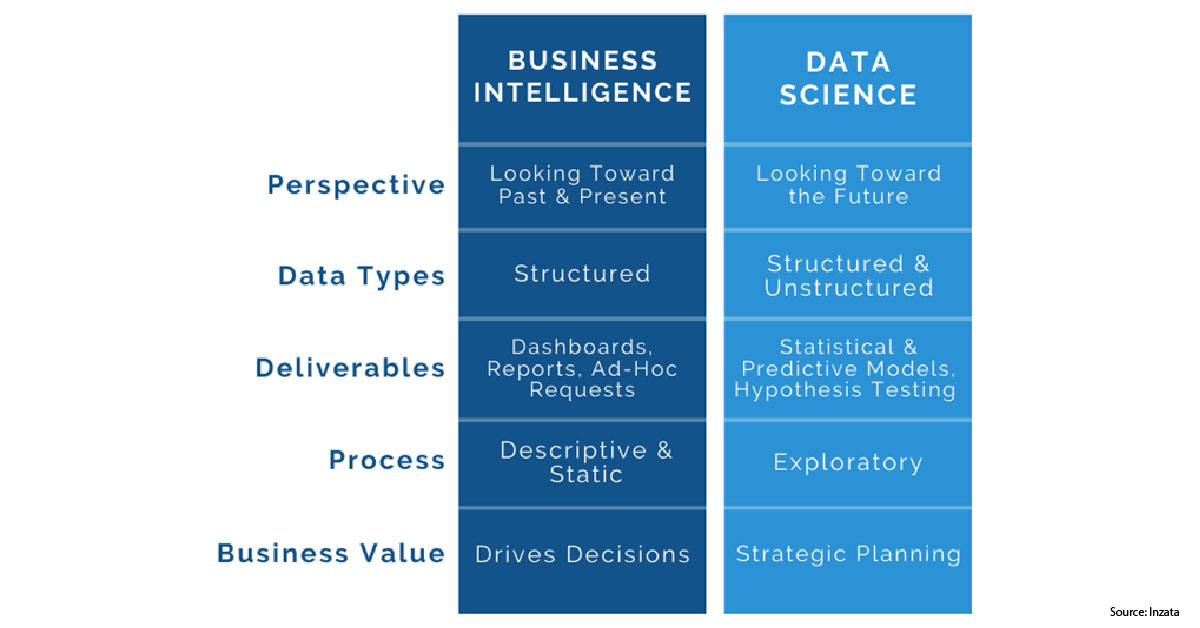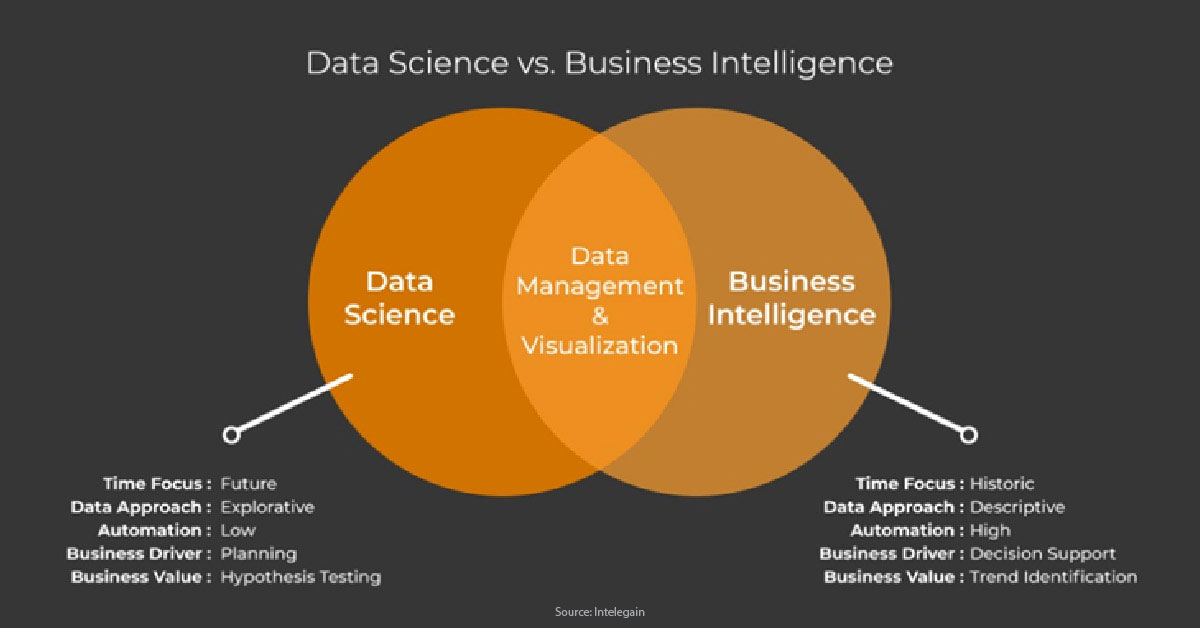
Data science specialists are putting business amplification on the high burner with astonishing game-changing strategies into play. No doubt, there are many areas of specialization, but becoming a data scientist is a rewarding career stream. The digital era has revealed the importance of data specialists in the way of bringing business intelligence to a massive pedestal. Let us dig into the data science revelations and how they infuse power into the strategic decision-making streams of businesses.
Communion of Data Science and Business Intelligence:
Business Intelligence is a set of strategies, technologies, and tools used to transform raw data into meaningful and actionable information for business decision-making. BI focuses on utilizing data to gain insights into business operations, market trends, customer behavior, and other critical organizational aspects of business. Business intelligence targets to empower organizations with the sheer capability of monitoring key performance indicators, identifying trends, detecting anomalies, and gaining a comprehensive competitive edge in data. It uses data visualizations, reports, and interactive dashboards to reach to actionable information. Statista reveals the revenue in the Business intelligence Software market to be USD 0.87 billion by this years’ end; and is expected to explode to USD 1.06 billion through 2028.
Data Science, on the other hand, is a multi-disciplinary stream that evolves as a science of extracting knowledge and insights from data. It involves a wide range of techniques, influence, innovation, algorithms, and methodologies to unravel the patterns, make predictions, and gain deeper understanding of structured and unstructured data.
However, the two go hand-in-hand; yet it qualifies for a credible distinction being made. Data science and business intelligence are diverse disciplines; their interplay is fundamental in extracting the full potential of data. As the data grows to 147 zettabytes worldwide by this year (bigdataanalyticsnews.com); it is essential to gain insights for astounding business amplification.
How Data Science and Business Intelligence Works Together?

Similar yet different; data science and business intelligence have a lot in common; yet differ in a majority of ways. It would be interesting to understand their workings together.
Data in isolation holds no value; this is why the process of data transformation into actional insights is essential to derive meaningful value to business decisions.
Data is collected from a diverse source hub such as internal databases, external APIs, customer interactions, social media, and more. Thereafter, the step of data integration involves consolidating data from diverse sources into a centralized repository known as data warehouse or data lake. This ensures ready accessibility of data for easy analysis.
EDA includes examining the data from multiple angles, opening patterns, identifying correlations, and gain initial insights from quality data visualization. EDA assists in forming hypothesis, identifying outliers or anomalies; and make informed decisions.
Popular data visualization techniques such as charts, graphs, and interactive dashboards can be an easy way out to finding a variety of insights that can guide business plans ahead. It facilitates the identification of trends, outliers, and key performance indicators.
Role of Data Scientists:

The big data analytics market is anticipated to grow to USD 103 billion; making it one among the fastest growing industries in the world right now (jetbrains.com). Isn’t that a massive opportunity for credibly qualified data scientists to mark a thriving career stream in data science? It also throws light on the major contribution that the data scientists provide toward building the future of the data science industry. Let us look at the crucial role that they have to honor to scale big data business ahead.
Data scientists are certified professionals who are the pivots of the business intelligence wagon.
They facilitate the process of decision-making by developing predictive modeling and conducting scenario analysis.
They optimize business operations by identifying inefficiencies, streamlining processes, and automating mundane tasks. It enhances organizational productivity, reduce costs, and improve resource allocation.
With clear identification of unexplored market prospects, optimization of pricing strategies, and competitor’s behavior prediction; data scientists help in fighting competition.
By analyzing market data, feedback loops, and product usage patterns, data scientists offer valuable insights that inform product development strategies.
Managing risks and ensuring compliance with industry standards is a must for mitigating financial abilities and reputation.
Giving decision-makers access to the most recent information and enabling them to act promptly in the wake of shifting consumer preferences and market trends.
Data scientists leverage predictive maintenance techniques and sensor data analysis to forecast equipment failures, optimize maintenance schedules, and maximum asset performance.
Deploying machine learning algorithms and predictive analytics; qualified data scientists assist businesses in predicting employee turnover, finding top talent, and devising developmental programs for longer talent retention.
Sentiment analysis, customer segmentation, recommendation engines work magic for businesses to glean valuable insights from customer data; enabling personalized experiences and targeted marketing campaigns.
Follow these 5 considerations for successful Business Intelligence:
Final word:
Looking at the real-world applications and transformational ways data science and business intelligence intertwine; there’s more to explore in the future of data science. Emerging trends such as Explainable AI, augmented analytics, and edge analytics are raising the bar for a hugely profitable landscape ahead. Make your way into the industry with sheer skills in influence and innovations to drive home strategic decision-making. Make the right move today!
This website uses cookies to enhance website functionalities and improve your online experience. By clicking Accept or continue browsing this website, you agree to our use of cookies as outlined in our privacy policy.